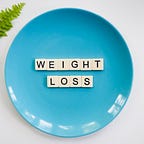How to drop 55 pounds without exercising in 4 months.
A detailed manual for maintaining weight loss with calorie restriction and healthy lifestyle choices
Many people have the common objective of losing weight, and there are innumerable diets and fitness regimens that make this claim. Yet, not everyone has the time or the physical capacity to follow strict exercise regimens, and some people may desire to lose weight without the necessity of strenuous exercise. If you fall into this category, you’ll be happy to learn that you can drop 55 pounds in 4 months without exercising. We’ll look at some advice and strategies in this blog article that can assist you in achieving this objective.
Tip #1: Follow a Calorie Deficit Diet
Creating a calorie deficit, or taking less calories daily than your body burns, is the key to losing weight. Exercise is not necessary to generate this deficit; it can be done solely through nutrition. You must consume less calories than your body needs to maintain your present weight in order to create a calorie deficit.
You can use an online calculator that takes into consideration your age, sex, weight, height, and level of activity to determine how many calories your body requires each day. Once you know this quantity, you must consume 500 to 1000 less calories per day than this to experience a calorie deficit. You might lose up to 32 pounds in four months if you do this, which will result in a weight loss of 1 to 2 pounds each week.
It’s crucial to choose nutritious foods that are high in protein, fibre, and healthy fats to make sure you’re getting enough nutrients. You will feel fuller for longer and be less likely to nibble on high-calorie meals as a result. Lean meats, fish, vegetables, fruits, nuts, seeds, and whole grains are a few examples of healthful eating.
Tip #2: Stay Hydrated
When attempting to lose weight, drinking plenty of water is crucial since it can make you feel full and curb your appetite. Also, drinking water can assist your body eliminate toxins, which can help you lose weight.
To help you eat less, aim to drink at least 8 glasses of water each day. You might also consider drinking a glass of water before each meal. To keep yourself hydrated, you can also sip on herbal tea or low-calorie beverages like flavoured water.
Tip #3: Avoid High-Calorie Foods
Avoiding high-calorie items like processed snacks, sugary drinks, and fast food is essential if you want to lose weight. These meals can make you gain weight since they frequently contain a lot of calories, bad fats, and sugar.
Instead, choose for nutrient-dense foods that are low in calories. Fruits, vegetables, lean meats, and whole grains can all fall under this category. You can also experiment with preparing meals at home with nutritious foods to help you manage the caloric content of each meal.
Tip #4: Practice Portion Control
While trying to reduce weight, portion control is crucial since it can help you eat fewer calories without feeling hungry. It’s crucial to be aware of serving quantities and refrain from overeating.
Use smaller plates and bowls and measure out your meals using measuring cups or a food scale to practise portion management. Also, eating slowly and savouring each meal will help you feel full more quickly.
Tip #5: Get Enough Sleep
Obtaining enough sleep is essential for weight loss as insufficient sleep can increase appetite and cause cravings for meals high in calories. For your body to be able to repair and rejuvenate, try to get at least 7 hours of sleep per night.
Tip #6: Manage Stress
Stress can contribute to weight gain by encouraging emotional eating and bad habits. Consider practising stress-relieving exercises like yoga or meditation, and be sure to take breaks throughout the day to rest and recharge.
Tip #7: Keep Track of Your Progress
Monitoring your development might help you stay inspired and make necessary modifications. To track your calorie intake, think about weighing yourself once a week and keeping a food journal.
To monitor your progress and set goals, you can also utilise a fitness app or website. You can use this to gauge your progress and alter your diet as necessary.
Tip #8: Seek Professional Help
Consider getting expert assistance if you’re having trouble losing weight or if you have a health issue that makes it harder for you to lose weight. A trained dietician can give you advice on developing a personalised nutrition plan and good eating practises.
A healthcare professional may also provide you advice on safe and successful weight loss as well as assist you in identifying any underlying health conditions that might be causing your weight gain.
Conclusion
It is feasible to lose 55 pounds in four months without exercising, but it takes commitment, self-control, and a balanced diet. You can create a calorie deficit, choose nutritious foods, and alter other aspects of your lifestyle to help you lose weight by using the advice provided above.
Always keep in mind that sustained weight loss requires time and work, so be patient and persistent. You may accomplish your weight loss objectives and enhance your general health and well-being with the appropriate attitude and a healthy lifestyle.
